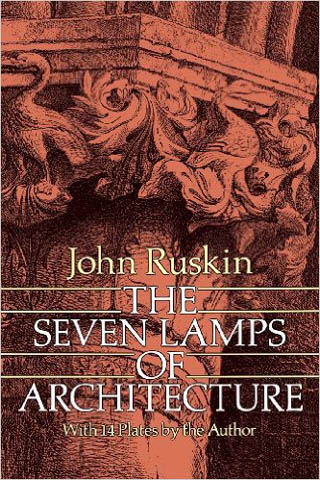Sadequl Arefin Saif | CONTEXT
It will surely be nice easing back into our old routines, only now with extra care. However, we chalk our coronavirus stories out – eternal losses, Zoom meetings, perpetuating petty thoughts and implausible insecurities, or barely trying to keep ourselves sane, chances are that psychologists, scholars and thinkers from around the world have heavily reflected on them already. Early on as we embrace ourselves to remote working and pandemic life, juggling in between anxieties and hope, we, CONTEXT, along with BaA (Bangladeshi Architects in Australia) decided to reflect on the experiences of likeminded Architects, Planners and Urban Designers residing across the globe on 27 June, Saturday through an online Zoom Symposium. 12 discussants have contributed to our theme “Towards a new normal: Rethinking Architecture and Urbanism in the Pandemic World”. The issue includes some of our connoisseurs overarching renditions dotted throughout various topics such as Living Environment during the Pandemic, The Politics of the Pandemic, Pedagogy, Profession and Future Direction.
Session 1: Living Environment during the Pandemic
The Covid-19 pandemic has recalibrated everything from life, to work and play. As most of the previous practices have either moved into digital platforms or in the confinement of our homes, cities have become a space for cultivating new ideologies. We ought to utilize these pandemic restrictions to reflect on changing practices in various fields such as mental health, pedagogy, social housing, emphasis on hygiene, transforming poverty to power, etc. We can further reflect on aspects that can be adopted and translated into digital platforms. With no cure of the virus in sight, everyone from scientists to politicians to media to friends and family has perpetuated this rhetoric as they imagine settling under compromises that brings along with the term “new normal”. This is where Dr. Fuad H. Mallick, Dean of BRAC University’s School of Design and Architecture said “the previous normal was not an acceptable situation. The inclusion of the word ‘new’ in the normal gives us the opportunity to rectify the old normal”. In order to forge a new paradigm, we should use our discomforts, in all aspects including politics and pedagogy. Covid-19 will advance the backlash against globalization amid the steepest reduction in the international flow of trade, investment and manpower. Manufacturing will come closer to us, accentuating the trend towards regionalization and re-localization. As Rumana Kabir, a disaster risk management and strategic planning specialist, suggested that now is the chance that the Bangladeshi professionals grasp the opportunity to excel and influence the government and the policymakers.
Session 2: The Politics of the Pandemic
We accept life under the omnipresent threat of disease as ordinary and continue to thrive in it by familiarizing ourselves with the norms of digital learning in no time. Although online learning is a technical solution that does not fully compensate classroom learning and teaching; we do not have a choice but to accept reality. On the brighter side, online education has the potential to engage students and educators across the globe. Discussants stressed the necessity to address the challenges of online education which lies in its accessibility, transparency, interactions to ensure an equitable online learning experience for all the students. However, if we talk specifically about architectural design education, the discontent is greater. The changes in architecture education for much of the past are not aligned with today’s fast-changing world, especially in the context of architectural practice. It’s high time to revisit the curriculum- as recommended by the speakers. Besides pedagogy, the opportunities of women leadership in the field were also explored.
Session3: Pedagogy
The impact of the pandemic on our profession demands scanning for risks and drawings insights for a wide range of domains. The phenomenon of working from home is having an adverse impact on the level of productivity and efficiency. Construction industries have been among the hardest hit by the COVID19 economic downturn. The architecture profession is getting pummeled by the uncertainty impacting individual practitioners, firms, and the community at large. In absence of any support from the government, Architect Jalal Ahmad, President of Institute of Architects Bangladesh informed us about IABs initiative of mobilizing the ‘Emergency Finance Scheme’ by collecting donations from the affluent architects and channeling them to the affected practitioners of the fraternity.
Session 4: Profession
Surely the current situational crisis is something that presents obstacles, trauma, or threats but it also offers opportunities to bounce back better. As the pandemic rages on, it has opened up windows of colossal magnitude to reimagine the world by tracing back the history, not forgetting it. We should try and reveal ourselves in the discomfort of the current calamities in order to generate a ‘new paradigm’, rather than return to old normal.
Session 5: Future Direction
Distinguished speakers and discussants were Dr. Fuad H. Mallick, professor and dean, BRAC University; Jalal Ahmad, president, Institute of Architects Bangladesh (IAB), Farhad Reza, president, Build Bangladesh; Iftekhar Abdullah, president, Bangladeshi Architects in Australia; Rumana Kabir, disaster risk management and strategic planning specialist, UK; Taufiqur Rahman Khan, secretary, seminar & convention, IAB; Dr. Farhan S. Karim, associate professor, University of Kansas, USA; Dr. Muntazar Monsur, assistant professor, Texas Tech University, USA; Kazi Hussain Emon, principal consultant at Cundall, Australia and Nubras Samayeen, doctoral scholar, University of Illinois at Urbana-Champaign and Tanzil Shafique, doctoral scholar, University of Melbourne. The symposium was facilitated by Samik Waiz, communication and seminar, Bangladeshi Architects in Australia, Shamsul Huda, director, 4thD Planning and Design, Australia.
CONTEXT contributor: Sadequl Arefin Saif, student of Architecture, BRAC University.


















